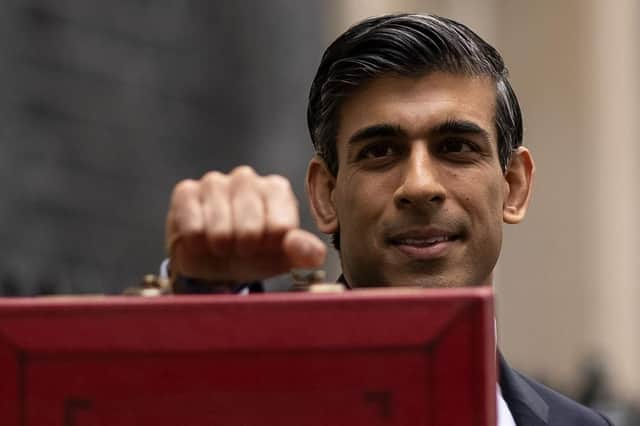Budget 2021: Government funding for key Liverpool projects at-a-glance


Chancellor Rishi Sunak delivered his budget speech on Wednesday and announced a £150 billion spending rise for the UK as he pledged to build a “new economy” post COVID-19.
That proposed funding included finance for a number of schemes in the Liverpool City Region - ranging from hundreds of millions for a sustainable transport package to financing a new Beatles museum.
Here the key funding items for Liverpool from the budget:
£710m to improve transport network
Advertisement
Hide AdAdvertisement
Hide AdAs part of the City Region Sustainable Transport Settlements scheme the Treasury will hand Liverpool City Region £710 million over five years to transform local transport networks.
The money will help fund Metro Mayor Steve Rotheram’s project to extend the Merseyrail network and establish an interlinked network of travel across the region.
The city’s fleet of trains is currently being overhauled to include battery powered trains that will increase the reach of the network to places as far as Wrexham - without the need to install expensive electrified lines.
The first of 53 new trains for the Liverpool City Region from manufacturer Stadler was revealed to the public last month.
Advertisement
Hide AdAdvertisement
Hide AdThe new trains are a key part of Metro Mayor Rotheram’s plan for a London-style transport network that seeks to make it quick, easy and reliable for people to travel around the region by linking different modes of transport together.
Levelling up funding for three projects
The Government earmarked £232 million levelling up fund for the North West for an initial 12 projects from the first tranche of allocations of funding. Three of those were in the Liverpool City Region.
- Rescuing the Ferry across the Mersey service in Woodside.
- Continuing the regeneration of Liverpool’s docks.
- Building high-quality segregated walking and cycling routes across the Liverpool City Region.
Liverpool City Council said that £20 million of the funding was earmarked for National Museums Liverpool and Tate Liverpool, which receive £10 million each.
Tate Liverpool will use the money to modernise and update its gallery and external public area so it connects with the Royal Albert Dock Liverpool.
Advertisement
Hide AdAdvertisement
Hide AdThe funding allows National Museums Liverpool to take forward the transformation of the Canning Dock Project, part of the organisation’s 10-year plan of reimagining the waterfront.
This landmark project will transform the area between the Royal Albert Dock and Mann Island, increasing access to museums and galleries and conserving the fabric of historic buildings for the next generation.
This will contribute to the visitor economy by levelling up economic and cultural opportunities across the city.
£2m for Beatles attraction
In his speech Chancellor Sunak said £2 million had been earmarked for a Beatles museum and the accompanying documentation said the money was for “a new waterfront attraction celebrating the work and legacy of the Beatles”.
Advertisement
Hide AdAdvertisement
Hide AdHowever, Liverpool City Council said the money was for a project with a working title of The Pool - a new development on the waterfront, which will create an area dedicated to celebrating and creating music.
HyNet revolutionary green network
The government confirmed its backing for the new and innovative low carbon and hydrogen energy project for the North West.
Due to start in the mid-2020s it will span Manchester, Liverpool, Chester and Warrington.
The HyNet programme is one of just two carbon capture, usage and storage schemes nationally to be selected for further development by government.
Advertisement
Hide AdAdvertisement
Hide AdThe project could begin decarbonising the North West from 2025, reducing annual CO2 emissions by 10m tonnes by 2030.
HyNet will produce hydrogen to replace fossil fuels in transport, industry and homes while also capturing and storing carbon dioxide produced by energy-intensive industry.
The Liverpool City Region will be at the heart of the project, from pioneering trials of new technology in St Helens and the Wirral, to carbon storage in Liverpool Bay.
